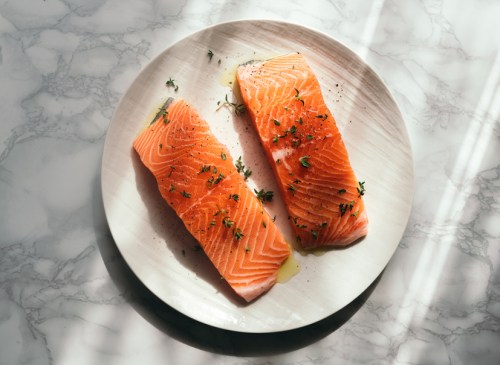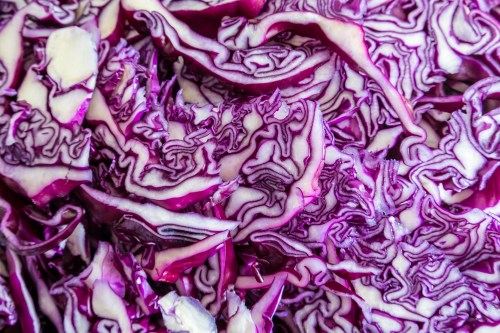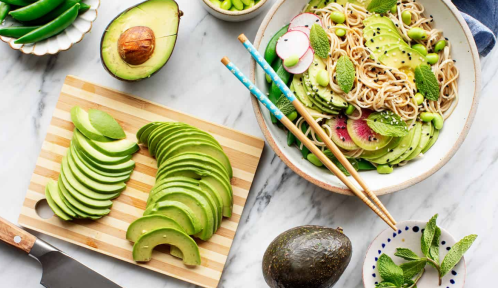Today, U.S. News and World Reports released its official ranking for the best diets and the top honors were given to the Mediterranean diet for the seventh year in a row. The eating plan—which advocates for lean proteins, whole grains, fruit, legumes, and plenty of vegetables and fatty fish—was deemed the best by a panel of experts who specialize in nutrition, metabolic health, and heart disease.
Experts in This Article
registered dietitian and nutritionist
Megan Faletra, RDN, is a global health dietitian, sustainability expert, and the founder of The Well Essentials.
Shahzadi Devje, RD, is a registered dietitian who helps clients eat healthy by using science-backed strategies that fit their culture and lifestyle. As a food and nutrition advisor and leader in national media, she frequently appears on TV and her commentary has been featured on Forbes, NPR, Huffington Post, NBC as well as other national and international media outlets.
It’s easy to see why the Med diet would beat out ones that are more restrictive, like the ketogenic diet or alkaline diet: There’s not only a wealth of studies backing up the Mediterranean diet’s benefits but it leaves more on the table than it restricts. Still, the eating plan isn’t without its faults. As Well+Good has reported, scientific studies on the Mediterranean diet lack diversity and the plan disregards eating patterns of different cultural traditions. We reached out to registered dietitians to see how they felt about the Mediterranean diet once again taking U.S. News and World Reports’ top spot and how they hope the eating plan continues to evolve in the future.
How the Mediterranean diet-focused folderol should evolve, according to registered dietitians
1. Focus on lifestyle habits, too—not just food
“Right now most recommendations in regards to the Mediterranean diet tend to focus solely on nutrition, and leave out other important aspects of the Mediterranean lifestyle which include culture, community, and movement—all of which play a significant role in impacting the possible long-term health benefits of this particular diet,” registered dietitian Megan Faletra, RD, says.
Community and movement are important pillars in Blue Zones, two of which, are in the Mediterranean region. “We need to stop looking at the Mediterranean diet as a diet and start discussing it as a lifestyle—one which if we looked closely has many similarities with other traditional cultures around the world,” Faletra says.
2. Broaden what is and isn’t considered “Mediterranean food”
Registered dietitian Maya Feller, RD, says part of why she feels the Mediterranean diet continues to come out on top is because it’s based on whole, minimally processed foods—a win in her book. But even though the eating plan doesn’t seem very restrictive, there are ways she believes it should be broadened even more, starting with the types of cuisine people think of as Mediterranean food.
“When people think of the Mediterranean, they tend to think of countries like Italy and France, but the Mediterranean Sea spans Western Europe as well as [Northern] Africa and the Middle East,” Feller says. She hopes the evolution of the Mediterranean diet includes people expanding past what they think of Mediterranean food to include ingredients and dishes from these regions as well.
“When people think of the Mediterranean, they tend to think of countries like Italy and France, but the Mediterranean Sea spans Western Europe as well as [Northern] Africa and the Middle East.”
—Maya Feller, MS, RD
3. Think bigger when it comes to flavor and spice
Another aspect of the Mediterranean diet Feller says she likes is that it incorporates spices (which add flavor as well as extra health benefits), but she feels this, too, is something that can be built upon. “One reason why I think people love Greek salad is because it incorporates spices and that’s not something we tend to think to include spices in,” she says. “But I can tell you that putting cumin on your lettuce and drizzling it with pumpkin seed oil is delicious.”
Feller hopes that people will think of ways to use the spices in their pantry beyond just when they’re making chicken or fish. She again encourages people to experiment with a wide variety of spices beyond what is considered Italian or Greek, broadening to include the Mediterranean region as a whole, and even beyond.
4. Ensure that the eating plan is more accessible, especially to BIPOC communities
While public health dietitian Shahzadi Devje, RD, is a fan of the Mediterranean diet, she says it has some shortcomings that need to be addressed to make it more accessible. “We typically hear that the Med diet can be ‘adapted’ to meet specific cultural needs,” she says. “In essence, we’re brushing other cultures aside and giving precedence to Western eating styles as the only way to be ‘healthy.’ I am afraid this ‘plug and play’ model is narrow-minded and rather discriminatory.”
This is in large part due to the fact that some foods characteristic of the Med diet are not always familiar or accessible to BIPOC (Black, Indigenous, and people of color) communities, Devje says. Many of these communities are disproportionately affected by food insecurity or are more likely to live in food deserts, making it harder for them to include these ingredients in their diets.
Thus, Devje says it’s important for the Mediterranean diet (and those recommending it) to consider accessibility and cultural habits when making dietary recommendations. “I believe it’s important to build cultural competence and advocate for dietary eating patterns relevant and meaningful to all—not just to white audiences,” Devje says, adding that it’s important to note that there is not one universally healthy eating plan for all bodies. “In order to engage the BIPOC community, healthy diets must be reviewed within the context of culture to ensure they are relevant, achievable, and sustainable. Food is highly personal for people; it’s an illustration of their culture and identity. We eat not solely to nourish our body—but also our life.”
5. Cook nutrient-forward dishes with whatever ingredients YOU like
Feller hopes the evolution of the Mediterranean diet will grow to include people putting their own unique stamp on it. “I’m such a lover of fusion food,” she says. “There is such a wide range of cuisine in various regions across the U.S. Think about what flavors are unique to where you live and how you can incorporate them using the principles of the Mediterranean diet.”
Feller says the key to adding your own twist while still staying true to what the Med diet actually entails is ensuring that the ways you build off it are still plant-forward, minimally processed, and incorporating healthy fats. That way, you’re still getting the nutrients that make the Med diet so beloved, but you’re using a wide variety of foods and spices to get there.
6. Reframe the diet from its “end all, be all” status
As beneficial as the Mediterranean diet is, Devje says she hopes the way we talk about the eating plan evolves in the future. “Promoting health and optimizing nutrition, throughout the lifespan, requires a globally inclusive lens; one where cultural diversity is accepted and included at all levels: in nutrition research and review, dietary guidelines, healthy eating public policy, and media,” Devje says. To this end, she hopes the future will be advocating that the Mediterranean diet is one healthy way to life, not the healthy way to live.
There’s no denying the health benefits that make the Mediterranean diet a healthy eating plan to follow for many. But broadening the way we think about what it means to eat Mediterranean will make it even more of a win going forward.
Watch the video below to learn more about the benefits of the Mediterranean diet:
Sign Up for Our Daily Newsletter
Get all the latest in wellness, trends, food, fitness, beauty, and more delivered right to your inbox.
Got it, you've been added to our email list.










